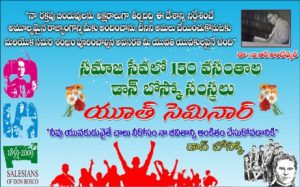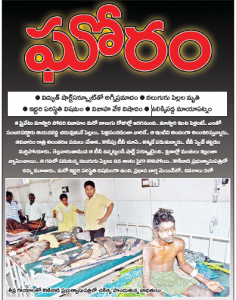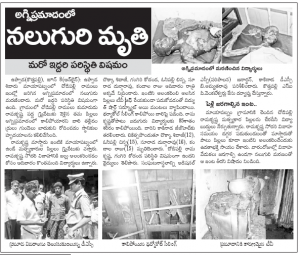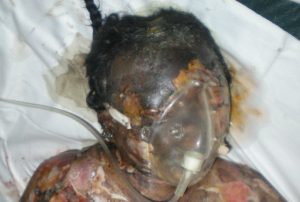Guidelines in place for Nine Is Mine Phase 2 Campaign
Background
9 is Mine campaign (Phase 1) was initiated by students of various schools with St.Columbus taking the lead and with the support of WNTA in the year 2007. It was an effort by children to hold the UPA government responsible for the promise they had made to allocate 6% of the GDP for health and 3% for Education. The effort to collecting over 4 lakhs signatures across India and meeting the Prime Minister to hand over the same to him did help to increase the budget at least marginally. The same effort was followed up in 2008 with children meeting the Ms.Shanta Sinha, the Chairperson of NCPCR in this regard.
Purpose of Phase 2
In phase 2 children will ascertain to what extent the entitlements through Sarva Siksha Abhiyan and ICDS (Anganwadi) reach them. This will be done with the support of members of SMC/teachers/adult guides. The data generated will be used for advocacy from the village to state and national level with the guidance of teachers and adult guides. There is need to strengthen the SMC formation and functioning. (All said and done, we won’t get more “committed people” than the members of SMC whose children are studying in those schools).
What teachers or adult guides/ social activist do for the campaign
- Ø They explain to the class, children’s parliament, bala sabhas the entitlements under the SSA/RGVM and ICDS. (These are on the report card- the list is not exhaustive. We have only taken those that can be easily physically verifiable.
- 1.Permanent Building
- 2.At least 2 Class rooms if the school has classes up to five
- 3.Drinking Water
- 4.Toilet for Girls
- 5.Ramp for access for the Differently Abled
And for ICDS
- 1.Permanent building with toilet
- 2.Food Store
- 3.Weighing machines for child and pregnant women/mother
- 4.Recreation and Study materials
- 5.Drinking water
- Ø They tell them that they are going to visit the schools & anganwadis centres in their village to verify if those entitlements are there.
- Ø They ask for volunteers (five would be sufficient ensuring equal representation of girls)
- Ø They accompany students during the visit to the schools and anganwadis in their village to mark as instructed in the report card. One card per school visited / One card for one anganwadi visited. They help students to arrive at a consensus regarding marks to be given.
- Ø They ensure that retain one copy of the report card and return the other is sent to the local coordinator of the campaign. They facilitate the meeting of the volunteers with the village sarpanch to share the findings and to see if any improvement can be done at the village level.
- Ø Advocacy is planned at one level with the elected members: village Sarpanch, Mandal President, MLA, MP, Minister of Education / Central Minister and at another level with bureaucrats: MEO / DEO / District Magistrate / Principal
Secretary Education.
- Ø This process will initiate a dialogue with key persons responsible for school and anganwadi ( HMs and anganwadi teacher) and will help to strengthen him/her. This linkage can be followed up at intervals by SMC at local level. The information from SMCs helps us to do continuous advocacy giving the necessary confidence to the HM/teacher knowing that this process is going on at the national level.
A coordinator is required if several teachers / adult guides / social activists are at work in a given Taluka / MLA, MP Constituency / District.
What the Coordinator should do.
- Ø They collect the report cards – the cards to be sent to People’s Action For Rural Awakening (PARA) – and sent it by November 14th to PARA office (Address included in the card)
- Ø She/He (at the level she/he is working) should coordinate the work of scaling up the advocacy & lobbying work – the Taluka president/ Educational officer / MLA/MP/District Authorities.
- Ø Facilitate along with other organisation’s coordinators the State level advocacy.
- Ø State level coordination can suggest names of two students and an adult to participate in the National Advocacy – tentatively scheduled for December 10th.
- Ø They do all that is necessary to make the campaign lead up to Delhi and lobby with the central government authorities with the support of WNTA.
This campaign will cover 20,000 schools and 20,000 anganwadis, 3000 villages, 800 talukas, 400 Assembly constituencies, 100 parliamentary constituencies 40 districts, 10 states. It will engage over 100,000 students. It will give them an opportunity exercise role in building a better nation for their tomorrow.
“A Fully functional school and an Anganwadi in every Village in India is our Right” is the clarion call of the campaign.
The campaign will act as a powerful tool for governance accountability around the two most important entitlements of children – education and health. It will help children/students to meaningfully participate in Nation Building and be citizens of today and add content to the pledge that they took during the SUTA events.
The Rescheduled Time line for the Campaign is:
1.First Phase – Visiting Schools, generating data, meeting the Village President to be completed by November 14th
2.Second Phase of advocacy at Taluka / MLA Constituency Level / MP Constituency / DEO/Collector by end of third week of November.
3.Third Phase - At state level by 1st week of December.
4.Fourth Phase along with WNTA in Delhi on December 10th.
Thomas Pallithanam
Summing up
- The campaign is to be done children assisted by adults
- One card per school surveyed
- There are two cards per set – retain one card and sent the other to PARA
- Use the card retained for local advocacy till district level along with others who are doing the same report generation through these cards. If your own organisation is doing it at several areas in the district you can coordinate it by yourselves. You will be given information regarding others not belonging to your organisation that are doing the report generation to help you coordinate at district and state level.
- Select students for district / state level advocacy: One student per district for state advocacy. Two students and an adult for National Advocacy.
- The following budget is available for Advocacy at various levels:
| Advocacy at MLA Constituency level | 400 Constituency at Rs.200 each |
80,000 |
| Advocacy at MP Constituency level | 100 constituency at Rs.500 each |
50,000 |
| Advocacy at District Level | 40 districts at Rs.1000 each |
40,000 |
| Advocacy at State Level | 10 states at Rs.10,000 each |
100,000 |
I understand the budget may not be adequate. Kindly put in the deficit from your side.
When doing advocacy kindly take photos/ensure adequate media (visual and print) coverage/document them (clippings)/ retain copies of memorandums and kindly send them to PARA for documentation.
Kindly make use of the budget available.
Thanks in advance for your active collaboration. Let us make this a great opportunity for children to show that they are
CITIZENS OF TODAY BY EXERCISING THEIR RIGHT TO PARTICIPATION
Thomas Pallithanam
People’s Action For Rural Awakening.
East Godavari District 533238
Andhra Pradesh
Mobile : +919490188935
Office : 08855255010
thomas@paraindia.org / info@paraindia.org / www.paraindia.org
Date : 20th October, 2010,
Place : Ravulapalem




